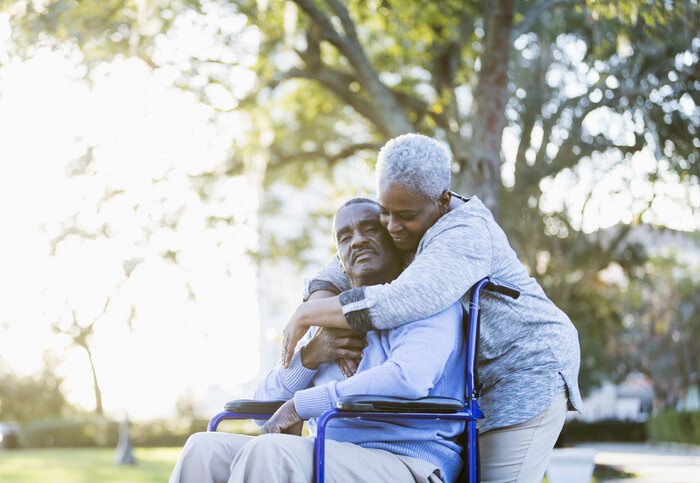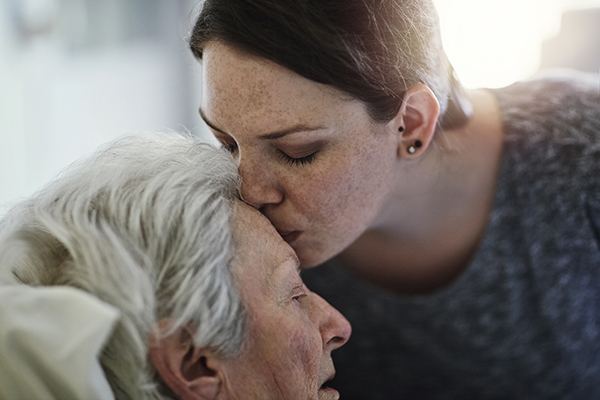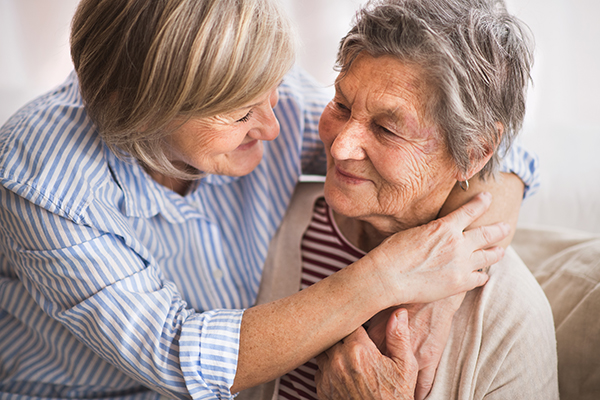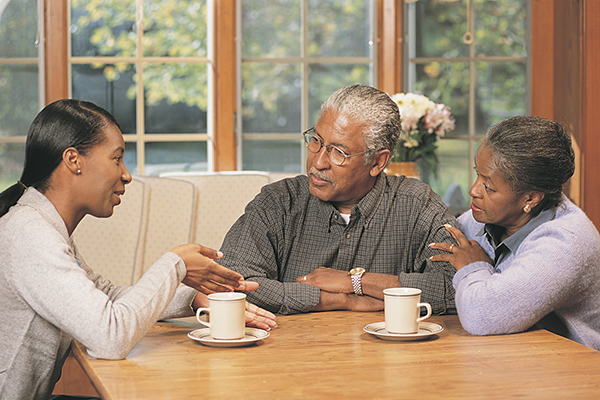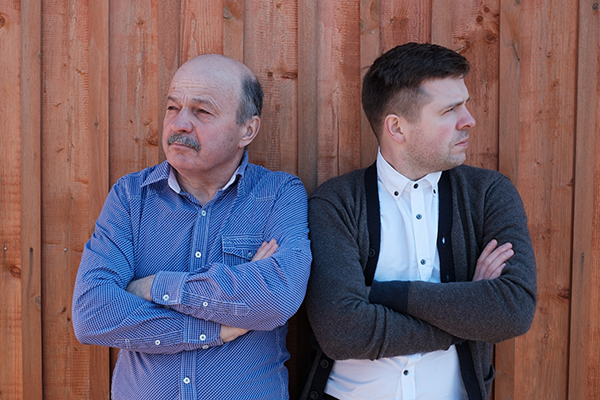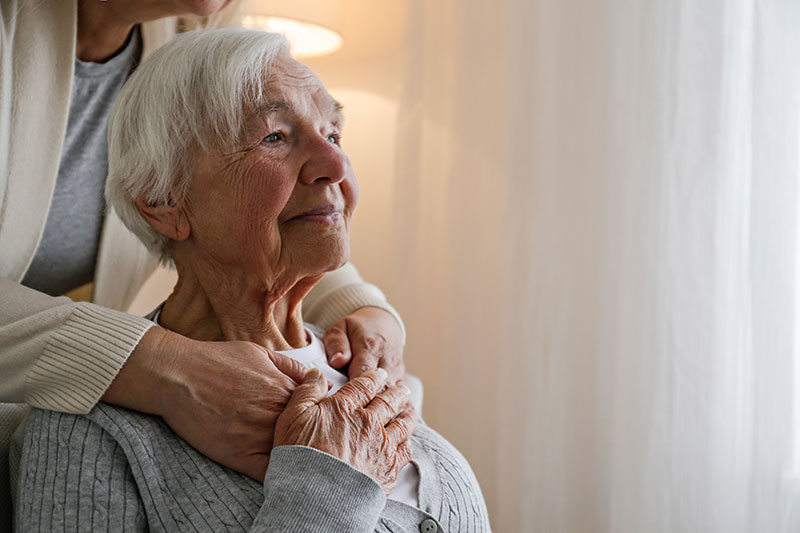Benefits of Home Care
One Simple Way to Replace Caregiver Stress with Joy
Rediscover joy and watch caregiver stress melt away with this one simple tip.
Our facial expressions divulge so much to those around us, and when you’re feeling an unusual level of caregiver stress, well-meaning family members will certainly recognize it, possibly encouraging you to essentially, “Cheer up, buttercup!” In reality, of course, it takes a whole lot more than a couple of words to turn our mood around.
Nonetheless, recent research does support the concept of positive thinking as a method to minimize levels of depression and anxiety which might develop when we’re bombarded with stress – something critical for busy family caregivers to take to heart to decrease the possibility for burnout.
Judith Moskowitz, head psychologist in the research project who consequently established a program to combat the downward spiral of emotions so typical in individuals providing … Read More »
End-of-Life Care Tip: Participating in Tough Conversations
When providing end-of-life care, one of the best gifts you can offer is a listening ear.
Sharing what’s on our hearts with those we love is never more important than when someone is nearing the end of life. There are often unspoken sentiments and unresolved issues that, once verbalized, can bring peace and a deeper connection with our loved ones in their final days.
As Dr. Jessica Zitter, physician in critical and palliative care medicine at Highland Hospital in Oakland, CA explains, “Those are opportunities for people to take stock and say, ‘I want to be more intentional about how I want to relate to people in my life.’ Death should really be seen as the last opportunity that you have to make amends and clean things up before you’re in the next world, wherever that may be.”
Read More »
5 Tips to Effectively Manage Paranoia in Seniors
Paranoia in seniors with dementia can be challenging, but these tips can help.
“I’m telling you, there’s a dog in my closet! I hear it growling all night long. We’ve got to track down its owner!”
Listening to a senior loved one express concerns like this that you know to be untrue is distressing – however, not unheard of. Your first instinct may well be to try and rationalize with the person with a response such as, “Nonsense! There is no way a dog could have gotten into the closet!” However, for various reasons, this could be the least effective technique to handle unreasonable thoughts and paranoia in seniors.
Instead, we at Hired Hands Homecare propose the following tactics which will help bring back a sense of calm and wellbeing:
First, schedule an appointment with the senior’s physician. It … Read More »
4 Reasons to Consider Dementia Care at Home
Seniors with dementia can very often continue to live where they’re most comfortable, with dementia care at home.
While countless older adults are struggling with the challenges of Alzheimer’s disease, an even greater number of family members are trying to cope with providing dementia care at home. Incredibly, nearly 75% of family caregivers are managing their older loved ones’ dementia care needs by themselves, with only 26% reaching out for professional care support.
Caring for Someone with Dementia? Here’s What You Need to Know.
Caring for someone with dementia is easier with help from our experts in elderly care in Pleasanton and nearby areas.
At times, the best lessons in life come through going through them firsthand; yet the wisdom we are able to glean from those who have walked an identical path before us is priceless. If you’re caring for someone with dementia and feeling a bit stressed in this uncharted territory, the guidelines below will help:
What to Do When You Notice Warning Signs of Aging Care Needs
Learn how to start the conversation when you notice warning signs of aging care needs.
The initial signs might be so subtle that many people wouldn’t even recognize that anything is amiss. Mom is outgoing, pleasant, and conversational while visiting loved ones and while running errands. But those closest to her have begun to detect concerns: being forgetful about the soup cooking on the stove, leading to a scorched pan. Putting her keys into the cookie jar. Failing to pay bills. What should you do when you begin to notice these kinds of warning signs of aging care needs?
As an adult child of a loved one in the early stages of compromised safety or the ability to make competent choices, it is normally incredibly difficult to transition to a higher degree of involvement and assistance – nonetheless … Read More »
For Better or Worse: Providing Care for an Aging Parent Without Sacrificing Your Marriage
Providing care for an aging parent can either strengthen or strain your marriage.
In marriage we agree to stick with each other for better, for worse, for richer, for poorer, in sickness as well as in health – but what doesn’t come up through our vows to one another is how to deal with the mounting difficulties of providing care for an aging parent.
However, with our life span increasing, it is highly recommended to put together a strategy to meet both the requirements of our parents as they grow older, and also the multitude of day-to-day needs, all while honoring our cherished relationship with a spouse. It’s a struggle that’s creating stress and pressure for 80% of couples interviewed, resulting in detachment and much less quality time with each other. These particular areas in a married relationship … Read More »
How to Respond if You’re Noticing Early Warning Signs of Alzheimer’s
Learn how to best handle addressing early warning signs of Alzheimer’s from our experts in home care assistance in Walnut Creek & the nearby areas.
Our natural instinct when we are picking up on the early warning signs of Alzheimer’s or another type of cognitive decline in ourselves or someone we love is to look the other way, denying that there is a problem. However, the Alzheimer’s Association advises that it’s vitally important to face the issue head-on as quickly as possible, since early diagnosis and intervention allow for the most effective treatment plan to be put into place.
Family Caregiver Tips: How to Overcome Resistance to Care
Overcome resistance to care with these family caregiver tips from the leader in Sonoma home care services.
For many seniors, admitting the need for help is likened to admitting defeat. After living in an era that emphasized the need to pull ourselves up by our bootstraps and stay strong and self-reliant in the face of adversity, it’s a difficult mindset to change. How can you help aging parents understand the benefits of home care assistance, without viewing it as a threat to their freedom and independence?
Family Dynamics: How to Provide Care for a Loved One You Really Don’t Like
Family dynamics can make it challenging to provide care for a loved one with whom you have a difficult relationship.
When it comes to caring for a family member, family dynamics can play a big part in the caregiver’s outlook. For those who have been brought up by loving parents who provided for all their needs, providing the same standard of care may simply be second nature. But what if you’ve been scarred by childhood experiences, determined to keep your distance from difficult family members later in life, simply to end up going back to provide assistance for them in a period of need?
AARP offers some helpful tips for family members who want to conquer old wounds in the interests of providing care:
Set emotional boundaries. It’s possible to give compassionate home care while staying emotionally detached. Just … Read More »




